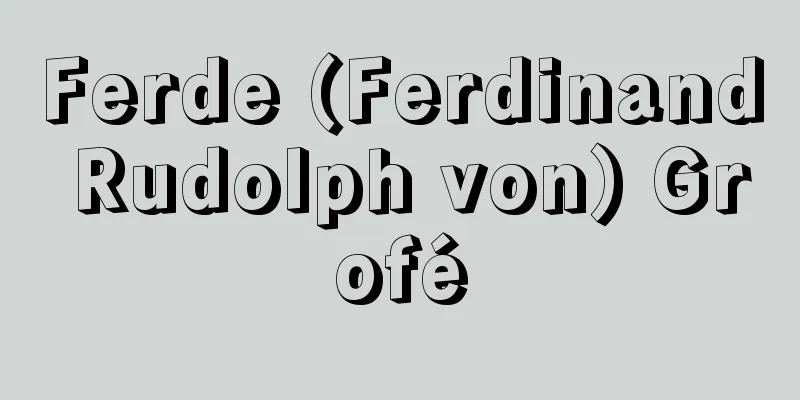Shuichi Kato

|
Critic and novelist. Born in Tokyo. Graduated from the Faculty of Medicine at Tokyo Imperial University. While still a student in 1942 (Showa 17), he started the Matinee Poétique movement for rhyming poetry with Nakamura Shinichiro and Fukunaga Takehiko. After World War II, he published a collection of essays in the style of a commentary, 1946 Literary Observations (1947), co-written with Nakamura and Fukunaga, which attracted much attention. He then established himself as a postwar writer with the novel One Fine Day (1949), based on his own wartime experiences, and launched a diverse range of critical works, including Literature and Reality (1948), What is Literature? (1950), and Literature of Resistance (1951). In 1951 he studied in France, and as a result of that study he published a collection of essays entitled Hybrid Culture (1956), in which he presented an outstanding theory of culture in which he considered Western culture to be pure, while Japanese culture was a hybrid culture based on superior traditions, and in this he foresaw new possibilities for cultural creation. In 1960, he was invited to teach at the University of British Columbia in Canada, and in 1970 he became a professor at the Free University of Berlin. He continued his literary activities while commuting back and forth between Japan and the country. With his broad perspective, which ranged from the natural sciences to the humanities, his abundant knowledge and culture, and his clear and sharp logic, he published many works, including Between the Two Poles (1960) and Shisendōshi (1970), a novel-style cultural theory that took up the works of Ishikawa Jōzan, Ikkyū, and Tominaga Nakamoto. He published works such as "Kuruigumomori no Harusame" (1964), "Kuruigumomori no Harusame" (1965), "Nakamotogogo" (1965), the novel "Sandaibanashi" (1965), "Art Essays" (1967), the memoirs "Song of the Sheep" (1968), "Words and Tanks" (1969), a travelogue "China Travel" (1972), a collection of essays on Japanese art "Speaking to Myself" (1972), and a collection of short stories "Fantastic Rose City" (1973). In "An Introduction to the History of Japanese Literature" (1975, 1980), which won the Osaragi Jiro Prize, he argued from a global perspective for the history of Japanese literature, which was influenced by the West but built its own traditions, and provided a benchmark for it. Furthermore, from July 1984 to April 2002, he has contributed editorials on a wide range of topics under the title "Sunset Nonsense" to the evening edition of the Asahi Shimbun once a month. He has also published such books as "Personal Notes on Modern Japan" (1987), "Reading Techniques" (2000), and "The 20th Century as I See It" (2000). [Haruhisa Furuki] "Santai Banashi" New Edition (1977, Chikuma Shobo)" ▽ "Kato Shuichi Collected Works, 15 volumes (1978-79, Heibonsha)" ▽ "Fantastic Rose City (Travel Bookshelf Series)" (1994, Iwanami Shoten)" ▽ "The 20th Century for Me" (2000, Iwanami Shoten)" ▽ "Kato Shuichi Dialogues, 4 volumes and a supplementary volume (2000-01, Kamogawa Publishing)" ▽ "Yuuhi Mōga 6" (2001, Asahi Shimbun)" ▽ "Song of the Sheep" (Iwanami Shinsho) ▽ "Mixed Culture" (Kodansha Bunko) ▽ "Introduction to the History of Japanese Literature, Volumes 1 and 2 (Chikuma Gakugei Bunko)" ▽ "Reading Techniques" (Iwanami Gendai Bunko) "Searching for Postwar Thought: Reading Mori Arimasa and Kato Shuichi" by Takeshi Ebisaka (1981, Misuzu Shobo) [References] | | | |Source: Shogakukan Encyclopedia Nipponica About Encyclopedia Nipponica Information | Legend |
|
評論家、小説家。東京に生まれる。東京帝国大学医学部卒業。在学中の1942年(昭和17)、中村真一郎、福永武彦(たけひこ)と押韻(おういん)定型詩の運動「マチネ・ポエティク」をおこし、また第二次世界大戦後いち早く中村、福永との共同執筆による時評風の評論集『1946 文学的考察』(1947)を刊行、注目された。続いて自身の戦争体験に基づいた小説『ある晴れた日に』(1949)によって戦後作家の位置を得るとともに、『文学と現実』(1948)、『文学とは何か』(1950)、『抵抗の文学』(1951)などの多彩な評論活動を展開した。1951年(昭和26)フランスに留学するが、その成果として評論集『雑種文化』(1956)では、西欧文化を純粋とすれば日本文化は優れた伝統を基盤としての雑種文化とし、そこに文化創造の新しい可能性を予見するという卓抜した文化論を示した。 1960年、カナダのブリティッシュ・コロンビア大学に招かれ、また70年にはベルリン自由大学教授となり、日本との間を往復しながら文筆活動を続けたが、自然科学から人文科学に及ぶ広い視野、豊富な知識と教養、明晰(めいせき)で鋭利な論理によって、『二つの極の間で』(1960)、石川丈山(じょうざん)、一休、富永仲基(なかもと)をそれぞれとりあげた小説体の文化論『詩仙堂志』(1964)、『狂雲森春雨(くるいぐももりのはるさめ)』(1965)、『仲基後語(なかもとごご)』(1965)、小説『三題噺(さんだいばなし)』(1965)、『芸術論集』(1967)、回想録『羊の歌』正続(1968)、『言葉と戦車』(1969)、訪問記『中国往還』(1972)、日本美術論集『称心独語』(1972)、短編小説集『幻想薔薇(ばら)都市』(1973)などを刊行した。大仏(おさらぎ)次郎賞を受賞した『日本文学史序説』上下(1975、80)では、西洋の影響を受けながら伝統を独自に築いた日本文学史を世界的な視点から論証し、一つの指標を提出した。さらに1984年(昭和59)7月から2002年(平成14)4月現在に至るまで、『朝日新聞』の夕刊に毎月1回、多岐の話題にわたって「夕陽妄語(せきようもうご)」という題で論説を寄稿しているほか、『現代日本私注』(1987)、『読書術』(2000)、『私にとっての20世紀』(2000)などの刊行がある。 [古木春哉] 『『三題噺』新装版(1977・筑摩書房)』▽『『加藤周一著作集』全15巻(1978~79・平凡社)』▽『『幻想薔薇都市(シリーズ旅の本箱)』(1994・岩波書店)』▽『『私にとっての20世紀』(2000・岩波書店)』▽『『加藤周一対話集』全4巻・別巻(2000~01・かもがわ出版)』▽『『夕陽妄語6』(2001・朝日新聞社)』▽『『羊の歌』(岩波新書)』▽『『雑種文化』(講談社文庫)』▽『『日本文学史序説』上下(ちくま学芸文庫)』▽『『読書術』(岩波現代文庫)』▽『海老坂武著『戦後思想の模索――森有正、加藤周一を読む』(1981・みすず書房)』 [参照項目] | | | |出典 小学館 日本大百科全書(ニッポニカ)日本大百科全書(ニッポニカ)について 情報 | 凡例 |
Recommend
Hawk
〘Noun〙① A general term for small species of birds ...
Lead carbonate
The basic salt 2PbCO3.Pb (OH) 2 is known commerci...
Neoptolemos
A hero in Greek mythology. Neoptolemus means &quo...
Upper limit - upper limit
〘noun〙① The upper limit. ⇔The lower limit. *Thinki...
Le Van Trung (English spelling)
…One of the religions founded in Vietnam. It was ...
H type ape man - Ecchi type engineer
…Olduvai culture [Mitsuo Iwamoto]. … *Some of the...
Minamiizu [town] - Minamiizu
A town in Kamo District, Shizuoka Prefecture, at t...
Vaitāl Deul (English spelling)
…However, the tower of the main shrine (deul) doe...
Manual reduction - Toshuseifuku (English spelling) manipulation
A technique for reducing dislocated joints or frac...
Passenger train - passenger train
〘 noun 〙 Luggage transported by passenger trains. ...
Lady Vimalakirti - Idakebunin
Date of birth and death unknown. Queen of Bimbisa...
Moorcroft, W. (English spelling) MoorcroftW
...In particular, in the 19th century, Russia aim...
Scleraxonia
…The coenchyma consists of two layers, an inner a...
Hotokukai - Hotokukai
A semi-public educational organization formed unde...
Car Zenshichi
A head of non-human samurai in the late Edo period...




![Kutchan [town] - Kutchan](/upload/images/67cb69eed18e5.webp)




